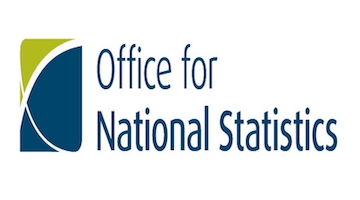
- Home
- News
Inflation falls back after reaching highest level in two years

Inflation has fallen slightly after it jumped last month to the highest level in nearly two years.
The Office for National Statistics revealed this morning that The Consumer Prices Index rose by 0.9% in the year to October, compared with a 1.0% rise in the year to September.
The rate in September 2016 was the highest since November 2014, when it was also 1.0%.
The ONS stated: "Although the rate was slightly lower than in September, it remained higher than the rates otherwise seen since late 2014.
"From November 2014, the rate began to fall, remaining at or around zero for much of 2015 before gradually picking up from the end of the year.
"The largest downward pull on inflation in October 2016 and for 2016 to date comes from prices for food and non-alcoholic beverages. Transport prices provided a downward pressure during 2015 and early 2016 but have since become the largest upward pressure on inflation.
"The main downward contributors to the change in the rate were prices for clothing and university tuition fees, which rose by less than they did a year ago, along with falling prices for certain games and toys, overnight hotel stays and non-alcoholic beverages.
"These downward pressures were offset by rising prices for motor fuels, and by prices for furniture and furnishings, which fell by less than they did a year ago."
CPIH (not a National Statistic) rose by 1.2% in the year to October 2016, unchanged from September.
Last month inflation rose by 1.0% in the year to September 2016, compared with a 0.6% rise in the year to August.
Reaction
Calum Bennie, savings expert at Scottish Friendly, said: “The surprise fall in inflation for October to 0.9 is just a pause for breath."
"The Bank of England has repeatedly warned that inflation will spike as currency effects take hold, and with interest rates not looking likely to budge anytime soon, savers need to take action now and consider ways to make their money work harder."
Richard Wazacz, of the peer-to-peer lending platform, Octopus Choice, said: "Inflation may have nudged down slightly in the year to October but it's very likely a temporary blip on an otherwise upwards trajectory.
"The real worry for savers is in what lies ahead due to the sharp fall in Sterling seen in recent months. The depreciation of Sterling has not yet fed through but few deny it’s coming.
“Longer term, conditions for savers look bleak. If the Bank of England's latest inflation and interest rate forecasts prove accurate, £10,000 saved on the high street today will be worth £331 less in real money after two years."
He believes savers will be in for a "torrid few years ahead".
He said: "Despite a brief respite in the year to October, gradually rising inflation over a period of years will be a death by a thousand cuts."
Russ Mould, investment director at AJ Bell, said: “Consumers will be delighted to see an unexpected drop in the rate of annual inflation, to 0.9% in October from 1.0% in September. However, they may start pinching their wallets when they see a 12.2% leap in producer price input inflation and a 2.1% increase in producer output prices, as these figures show what may come through the pipeline in the coming months.
“There is no guarantee that producer price inflation will feed all the way down the chain, as corporations may decide – or feel obliged – to hold their prices and take a hit on margin instead. In addition, the pound could rise and oil could sink, undoing two other key influences on the rise of input costs."
Alistair Wilson, Head of Retail Platform Strategy at Zurich, said: “Inflation may have held relatively steady, but it’s important to look at the wider picture. It has been following an upward trend over the last few months, and looks set to continue.
"Quite simply, any increase in daily expenses such as food prices or petrol adds strain to the family budgets, reducing the ability to save for the long-term. This clearly becomes a bigger problem when trying to balance immediate financial priorities with saving over a longer period, as people will be doing with their pension plans."
